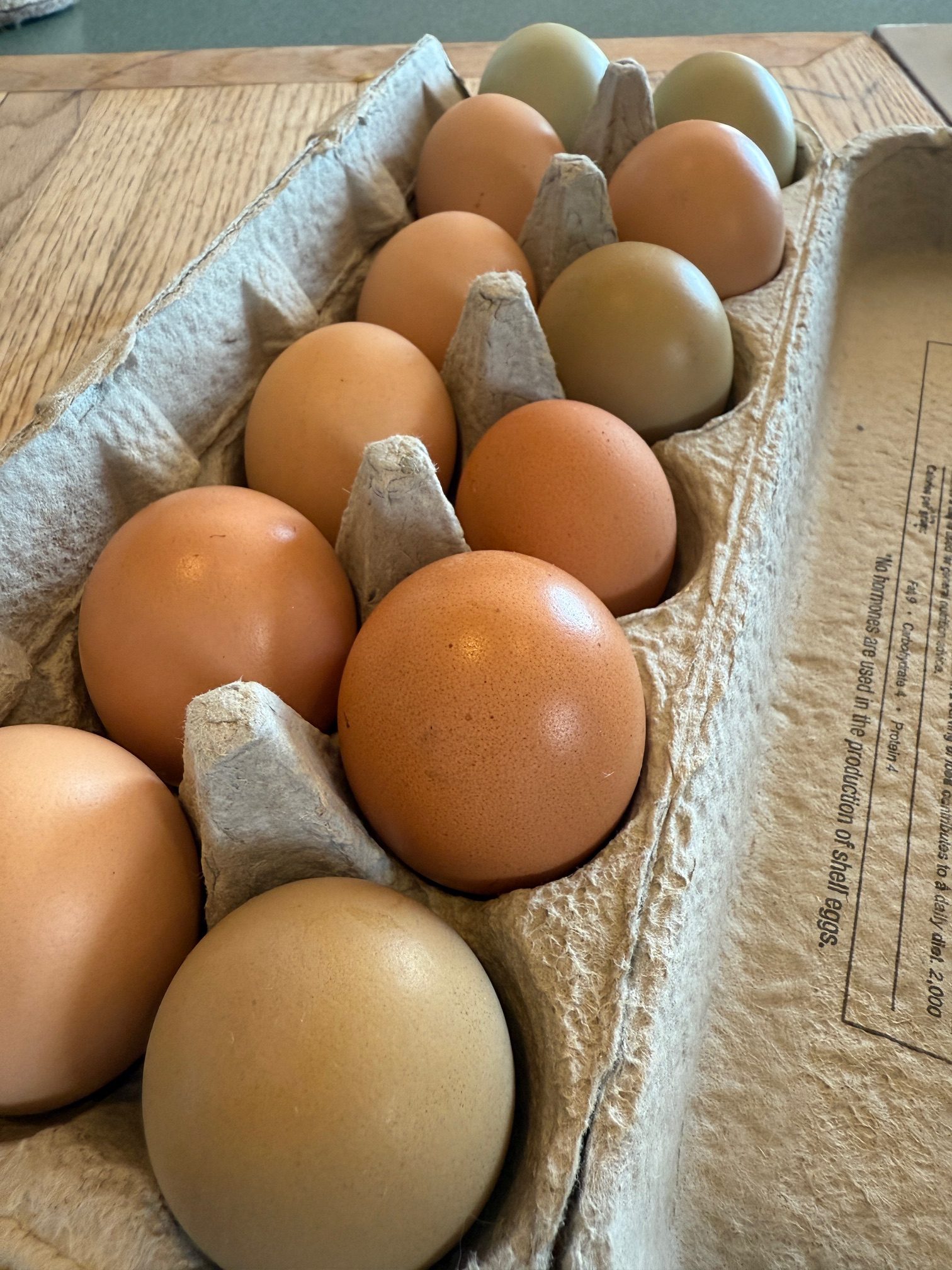The Colorado Department of Agriculture (CDA) issued a press release at the end of December to announce that as of January 1, 2025, the final phase of Colorado’s cage-free egg law is now in full effect. Egg cartons will be labeled with “CO-COM,” “organic,” or “cage-free” on their package, to demonstrate compliance with the law.
“Cage-free” does not mean the same thing as “free range.” It does mean, however, that laying hens in commercial egg-producing facilities cannot be confined in cramped cages but must be allowed a certain amount of space per hen. The first phase of the cage-free egg law, passed in 2020 as HB 20-1343, mandated that by January 1, 2023, hens must be allowed at least one square foot of floor space. That amount increased on January 1, 2025, to 1.5 square foot of floor space per hen, in addition to perching space, along with other regulations.
According to the CDA press release, “All commercial Colorado egg-laying facilities are already compliant with the regulations effective January 1. Since 2023, 74 certificates of compliance have been issued, representing approximately 1,500 farms outside of the state that can supply eggs to Colorado.”
Which means, theoretically at least, that there should be plenty of eggs on hand for Colorado. However, warns the CDA, “some consumers may see signage at their grocery stores indicating an egg shortage or a carton limit per purchase.” This is because Colorado, as well as the rest of the country, is still grappling with the largest-ever outbreak of Highly Pathogenic Avian Influenza (HPAI). The CDA says that HPAI has impacted “more than 127 million domestic birds nationwide since 2022 including nearly ten million in Colorado.” Since egg producers are obligated to destroy all birds in their facility if an outbreak of avian flu is detected, HPAI is continuing to wreak havoc on the supply chain, which leads in turn to increased egg prices here and across the country.
The good news for Colorado consumers is that egg producers have been preparing for the costs of converting their facilities for cage-free hens for several years now, and those costs have been largely absorbed into Colorado’s egg pricing. The bad news is that because of HPAI, anyone who was expecting the price of eggs to drop substantially in 2025 may be disappointed to discover that that will not necessarily happen.
But fortunately for Custer County residents, eggs remain high quality and plentiful with local producers who produce cage-free eggs. You can find them at locations such as Sunflower Natural Grocers in Westcliffe, Valley Feeds east of Silver Cliff, and these Classified pages.
– Elliot Jackson

